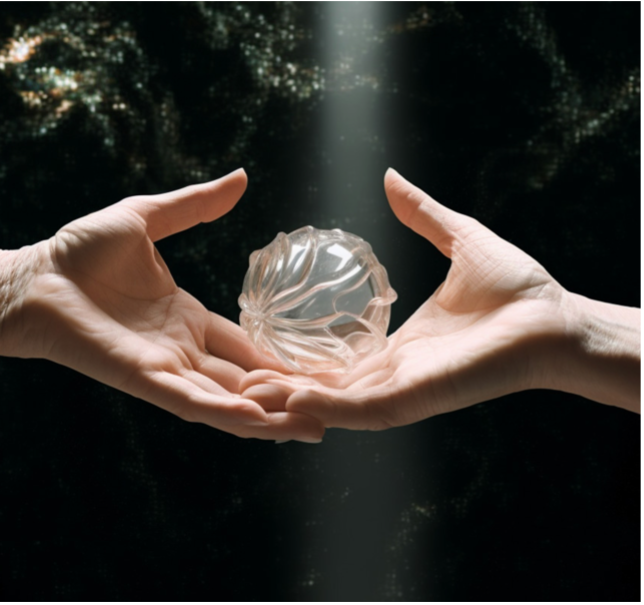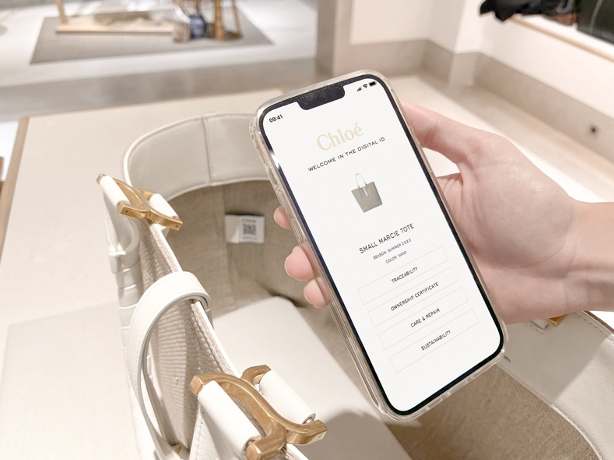
What are the shifts in consumer attitudes, behaviours and tastes that luxury brands need to know?
Understanding the modern consumer has never been more important. As new generations start to engage with luxury in different ways, brands are adapting to keep up with these younger audiences.
In 2024, 71% of executives plan to spend more on brand marketing than in 2023, according to The Business of Fashion. Why? They want to create a deeper emotional connection with their customers. Given the challenging economic and political outlook for 2024, boosting consumer confidence is a priority for luxury retail.
As a result, we are also witnessing what could be described as the diffusion of luxury. Enthusiasts now use social media to engage with their favourite luxury brands, access luxury through second-hand markets or indulge in new experiences. In this edition, we explore some of these changes.
The Great Wealth Transfer is set to redefine luxury spending over the next 10–15 years as trillions are passed from older generations to younger ones.
: New definitions of luxury: By 2045, wealth transferred from Boomers and Gen Jones to Millennials and Gen Z is expected to reach $84.4 trillion (€77.3 trillion), according to Cerulli Associates. The Great Wealth Transfer is not just about the movement of money – it is a transfer of values. Heritage is no longer enough to engage new generations. As many as 65% of consumers in the UK, Europe and China believe that luxury brands need to evolve in order to remain relevant, research by Revolt reveals.
: Tech-vestments: To adapt to the digitally native preferences of new luxury consumers, major industry players are doubling down on digital transformation. LVMH, for example, has invested $1.9bn (€1.7bn) in tech development, according to figures from GlobalData.
LVMH is a founding partner of Viva Tech – the largest event dedicated to tech start-ups in Europe. In addition to using the event to present new innovations across its portfolio, such as Loro Piana’s partnership with the Aura Blockchain Consortium, the event is an opportunity for LVMH to identify start-ups through its Innovation Award.
: From consumers to communities: Younger luxurians are no longer simply passive consumers – they want to engage more proactively with brands. To strengthen connections between Maisons and their communities online, brands like Louis Vuitton, Prada and Porsche are joining platforms like Discord. Louis Vuitton’s Discord channel will showcase the brand’s expertise, educate the community on innovations, provide exclusive access to unseen content and create a place for members to share their views.
Continue the conversation: How do your clients define luxury today, especially considering their attitudes to community, tech and creativity?
 Image: AI imagery by The Future Laboratory, UK
Image: AI imagery by The Future Laboratory, UK
As brands diversify their offerings into beauty, gourmet food and cultural activations, the split between hard luxury goods like jewellery and watches, and more accessible luxury categories, is evolving.
: The promise of beauty: Consumers are trading up and increasing their spending, especially in fragrances and make-up. LVMH’s Perfumes & Cosmetics group recorded 17% revenue growth in 2022 thanks to the performance of the Miss Dior, J’Adore and Sauvage scents. Recently, Dior has expanded its beauty line-up with Bonne Étoile, a fragrance and skincare range for infants released under the Baby Dior line.
: Epicurean experiences: Food and drink is another opportunity. Moët Hennessy is drawing inspiration from LVMH’s fashion, watches and beauty brands. California-based Chandon Home is a wine-tasting destination and the exclusive micro-community programme Club Chandon opened a new lounge designed exclusively for members in January 2024. This follows the opening of Cravan in the Parisian Saint-Germain-des-Prés district in June 2023 – a five-storey cocktail venue.
: Culture enthusiasts: As generations raised in the streetwear era, younger Millennials, together with Generation Z, also have a vision of luxury that is based on trading in knowledge, access and community.
Babylone in Paris is a bookstore and cultural hub from Saint Laurent, which serves as a physical space where fashion fans can engage with the brand beyond clothing and accessories. The Dior bookshop on Avenue Montaigne also offers a selection of iconic books that promote the House’s art de vivre, while Louis Vuitton similarly offers books in selected stores.
Continue the conversation: Ask your clients what offerings in luxury beauty, food and drink, and culture excite them the most. Do they think these extensions enrich their relationship with the Dior brand?
 Image: Chloé Vertical
Image: Chloé Vertical
As demand for pre-owned luxury grows, luxury brands are reclaiming their share of the resale economy and launching integrated resale initiatives – turning this into an opportunity based on circularity, transmission, value and heritage.
: Circular investments: Younger consumers increasingly see luxury resale as an investment in the circular economy. A report from Klarna finds that 26% of US consumers view future resale value as one of the most appealing features of luxury products. This suggests brands like Dior could position their offerings as enduring assets – especially with searches for items such as Dior loafers and the Dior Lady bag increasing by 88% and 70%, respectively, between 2022 and 2023 on second-hand platforms like The RealReal.
: Integrated resale: To reclaim a stake in the second-hand market, luxury players are launching their own integrated resale initiatives. Rolex has introduced a Certified Pre-owned programme for watches that are at least three years old – offering customers the opportunity to purchase pre-owned timepieces that are guaranteed by the brand.
Leveraging authenticity: With the rise of blockchain and other technologies, brands like Chloé are recognising their unique advantage to bolster consumer confidence in the resale market. Chloé Vertical enables users to trace a product’s lifecycle and provides a digital ownership certificate for seamless and trustworthy resale. In 2024, it is rolling out Digital IDs for all of its ready-to-wear and shoes to support this initiative.
: Accessing the brand archive: Among Gen Z and Millennials, 56% would forgo the latest trends in favour of a one-of-a-kind piece, according to ThredUp. Recognising this shift towards unique and timeless pieces, LVMH has introduced Heristoria – the first dedicated platform for the sale of the brand’s archive items – to tap into new collector mindsets.
The added value of Heristoria is that every sale is accompanied by an exclusive customer experience to understand the history and heritage behind the product sold – merging legacy with the circular economy.
Continue the conversation: Do your clients view your luxury items as investments? Discuss how Dior pieces hold value over time
Trends intelligence, research, and insights – on demand. Actionable foresight across 20+ sectors.
Book a demo to view the platform.